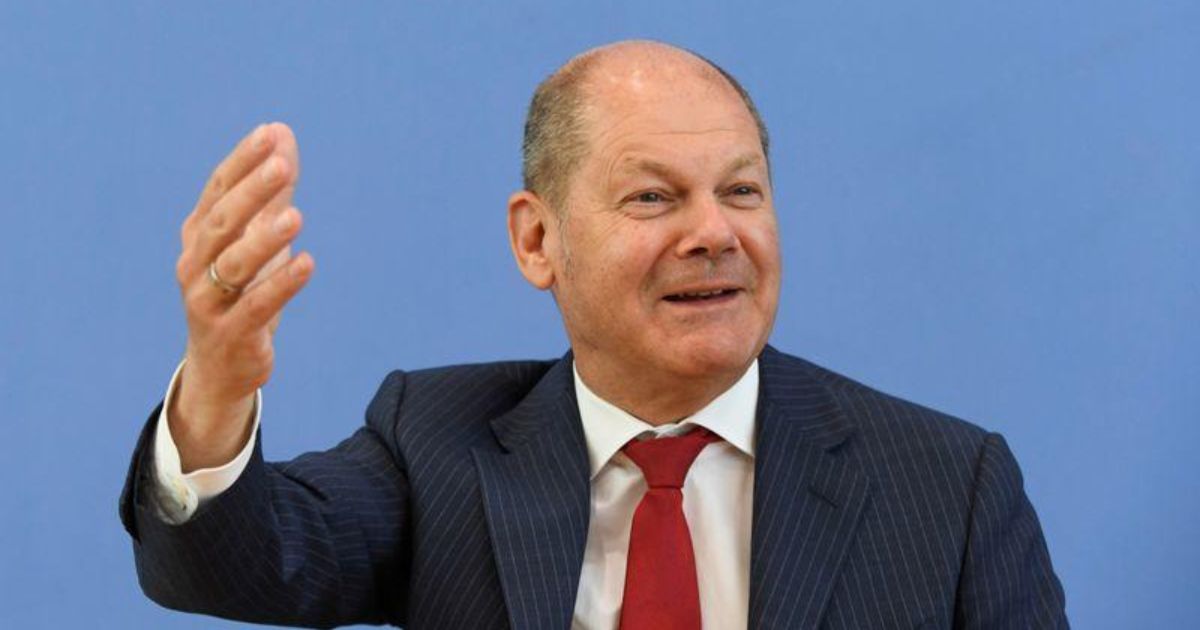Who Is Olaf Scholz?
Olaf Scholz is the current Chancellor of Germany, having taken office in December 2021 following the retirement of long-time leader Angela Merkel. Representing the Social Democratic Party (SPD), Scholz is known for his pragmatic, steady leadership style. Despite a calm and understated public persona, he plays a central role in shaping European politics and Germany’s response to pressing global issues like the Ukraine war, energy security, and economic resilience.
Often dubbed the “Scholzomat” for his robotic speaking style, Scholz embodies a deliberate and calculated approach to governance. His focus on stability and long-term planning appeals to a German electorate that values reliability, especially in uncertain times.
📌 Official Profile – German Federal Government
🎓 Early Life and Legal Career
Born on June 14, 1958, in Osnabrück, Lower Saxony, Olaf Scholz grew up in Hamburg. Coming from a working-class family, he was the eldest of three brothers. He studied law at the University of Hamburg and specialized in labor law. As a lawyer, Scholz represented trade unions and workers — a foundation that later shaped his political ideals around fairness, worker protections, and economic equality.
He joined the Young Socialists (Jusos), the youth wing of the SPD, during the late 1970s. Back then, he was known for left-leaning views and criticism of NATO and capitalism, although his ideology gradually shifted toward a more centrist, technocratic vision.
📚 Learn more about the SPD’s history
🏛️ Political Career Timeline
Olaf Scholz’s rise through German politics has been steady and calculated.
🗳️ 1998 – Elected to the Bundestag (German federal parliament)
⚖️ 2002–2004 – Served as SPD’s General Secretary under Chancellor Gerhard Schröder
📉 2005–2007 – Deputy parliamentary leader of the SPD
👷♂️ 2007–2009 – Federal Minister of Labour and Social Affairs, where he led job market reforms during the global financial crisis
🏙️ 2011–2018 – Mayor of Hamburg, overseeing infrastructure growth and refugee integration
💰 2018–2021 – Federal Minister of Finance and Vice Chancellor under Angela Merkel during the COVID-19 crisis
🏆 2021 – Became Germany’s 9th Chancellor following SPD’s victory in federal elections
📌 Germany’s Chancellors – Bundesarchiv
🌍 Foreign Policy and the Ukraine War
One of Scholz’s biggest foreign policy tests has been managing Germany’s stance on the Russia-Ukraine war. Initially criticized for a slow response and hesitance to send military aid, Scholz eventually pivoted Germany into taking a much firmer position. He committed to sending tanks and increasing Germany’s defense budget, signaling a significant policy shift.
Germany’s “Zeitenwende” (turning point) speech delivered by Scholz in 2022 marked a new era in German defense and foreign affairs. Under his leadership, Germany pledged to become more assertive in securing European and NATO interests.
🌐 NATO’s page on Germany’s role
💶 Economic Policy and Challenges
As a former finance minister, Scholz brings a keen understanding of macroeconomics to the Chancellor’s office. He has championed:
💼 Industrial modernization
🏗️ Public investment in infrastructure
💡 Green energy transition
📉 Inflation control during the energy crisis
His administration unveiled a €200 billion relief plan to protect businesses and households from soaring energy costs, earning praise from economic analysts across Europe.
📊 Germany’s economic indicators – Statista
🧘♂️ Leadership Style
Scholz’s quiet, disciplined approach stands in contrast to more charismatic or populist politicians. He relies on careful planning, data, and policy consistency. While critics call him indecisive at times, his calm demeanor appeals to voters seeking stability and reason over spectacle.
He rarely gets flustered, avoids sensationalism, and prefers behind-the-scenes negotiations over press conferences. This consistency has earned him respect across Europe, even when his popularity at home fluctuates.
❤️ Personal Life
Olaf Scholz is married to Britta Ernst, a politician in her own right and a member of the SPD. The couple has no children and is known to keep their private life away from public view. Both are passionate about public service and education.
In his free time, Scholz enjoys long walks, reading, and relaxing with classical music. Unlike many public figures, he has no known social media presence, reinforcing his image as a reserved but thoughtful leader.
📌 Britta Ernst – Brandenburg State Parliament (in German)
📈 Net Worth and Salary
While Scholz has never flaunted wealth, public records indicate his earnings come from government salaries. As Chancellor, his annual salary is approximately €360,000. His net worth is estimated to be between €1 million and €2 million, mostly from savings and property holdings, but he lives a modest lifestyle.
💡 Chancellor salary and pensions – Bundesfinanzministerium (in German)
🔮 What’s Next for Scholz in 2025?
With Germany navigating geopolitical shifts, Scholz’s future depends on his ability to manage rising right-wing populism, maintain economic stability, and lead the green energy transition. The next federal election in 2025 could prove pivotal. If his coalition holds together and delivers on key promises, Scholz may secure another term. But challenges remain, especially from the conservative CDU and rising forces like the AfD.
Stay updated via Deutsche Welle (DW) Politics
📝 In Summary
Olaf Scholz may not dominate headlines with fiery speeches, but his impact on Germany’s political and economic trajectory is undeniable. A technocrat with a long-term vision, Scholz represents continuity in an era of turbulence. Whether managing war, inflation, or coalition politics, he continues to embody the quiet strength Germany is known for.
